Ive seen several harvesting machine concepts used on Wood Lake. At one point they were considering using 2,4D aka Agent Orange but eventually clued in that raw sewage was feeding the problem.They are still dragging Okanagan Lake for the suckers as we speak .
Trudeau’s nitrogen policy will decimate Canadian farming
- Thread starter B00Mer
- Start date
You are using an out of date browser. It may not display this or other websites correctly.
You should upgrade or use an alternative browser.
You should upgrade or use an alternative browser.
I knew they had a problem. I didn’t know there is potential value in it.And apparently some dont consider that there are freshwater versions with immense potential.
If you are familiar with what happened in the Okanagan Valley in the 1970s and is problematic today after someone flushed their fish tank youd see the potential.
That Eurasian crap grows meters a day. That shit can be used to bring overly nutrient rich and alkalinity screwed lakes and sloughs to balance. There is no shortage of lakes, sloughs and wetlands to do this in in Canada.
Who wants to try? Itll clean up climate cash too.
Its an opportunity to be a Librigarch like Trudeau and Co.
Haven’t noticed what is happening at Wood but the chlorofluorocarbons must be high .Ive seen several harvesting machine concepts used on Wood Lake. At one point they were considering using 2,4D aka Agent Orange but eventually clued in that raw sewage was feeding the problem.
Out in the real world, energy and food shortages exacerbated by Russia’s invasion of Ukraine constitute a looming humanitarian crisis, which has exposed Europe’s dependence on Russia and the limits of renewable energy.
In the real world, the inflation problem is about to be made worse by a major increase in global food prices, as one of the world’s largest breadbaskets, Ukraine, continues to struggle to get its grain to market due to Russian attacks.
Canada’s response? Reduce our food output by slashing the use of fertilizers, ignoring the best farming practices and driving up costs.

In the real world, coal use is skyrocketing, as countries look for stable sources of energy in the face of natural gas shortages and disruptions in Russian supply. Asia, in particular, is building dozens of new coal generators, and even Europe is cancelling plans to phase out coal.
Canada’s response? Reduce energy production and exports by capping emissions from the oil and gas sector, thus driving up costs and ignoring the remarkable steps the industry and provincial governments have taken to make Canadian energy a global leader in terms of its environmental standards.
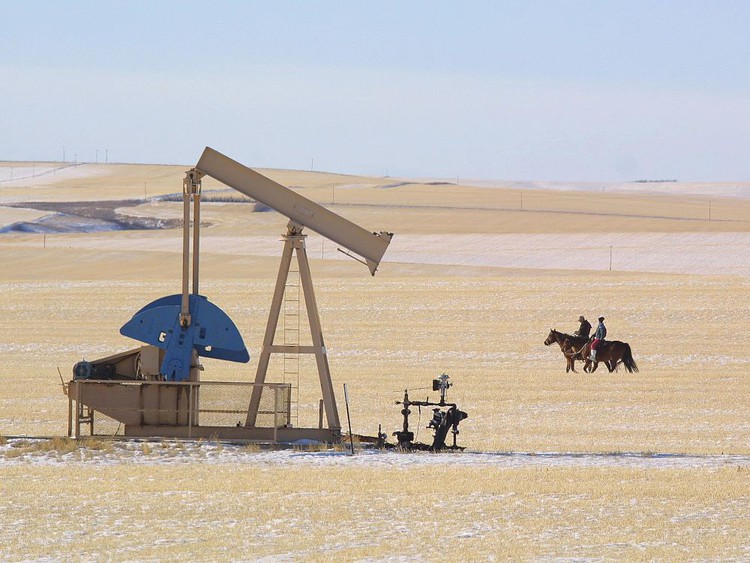
 apple.news
apple.news
In the real world, the estimated carbon emissions from China’s new coal plants alone are double what Alberta’s oilsands emit.
Canada’s response? Introduce Bill C-69 and other regulations that have derailed natural gas production and prevented the building of LNG export terminals, making us neither able to help Asia cut emissions by displacing coal, nor help Europe get out from under the thumb of Russian President Vladimir Putin.

Clearly, the federal government’s economically devastating regulations are being pushed forward by people solely focused on Canada’s emissions, in utter disregard for what the world actually needs right now, and with disdain for the real environmental progress that has been made in both sectors.
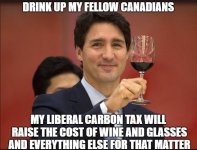
These aggressive regulations seem also to be pushed by people making a cold political calculation: a look at the electoral map shows the current government gets little to no MPs from the places where farmers and energy workers live.
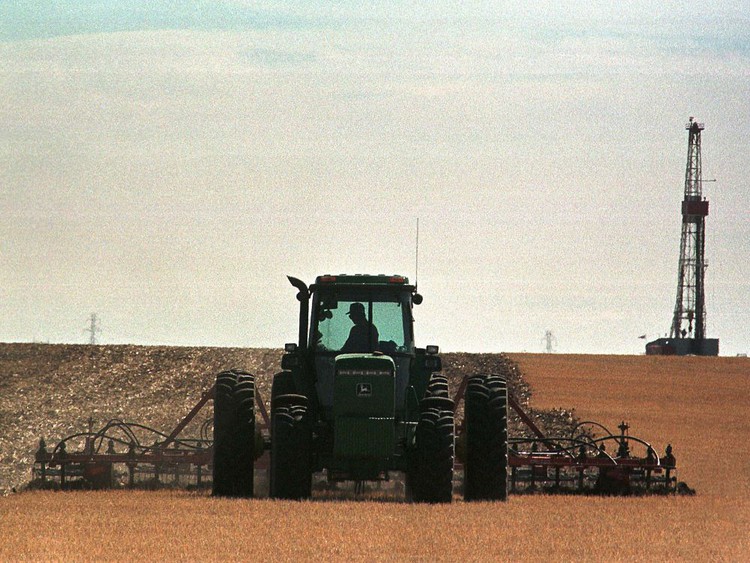
 apple.news
apple.news
If Quebec and Ontario were home to the oilsands, nobody believes their key sector would be singled out like this. Likewise, If the ruling party relied on farming communities for political support, it would not be pushing a radical cut in fertilizer use.
To some extent, of course, this is to be expected in politics, but the stakes right now for all Canadians are far too high to shrug this off. Inflation is a key issue for many Canadians, and these policies will make it much worse. They will also make Canadians poorer, while exacerbating global food insecurity.
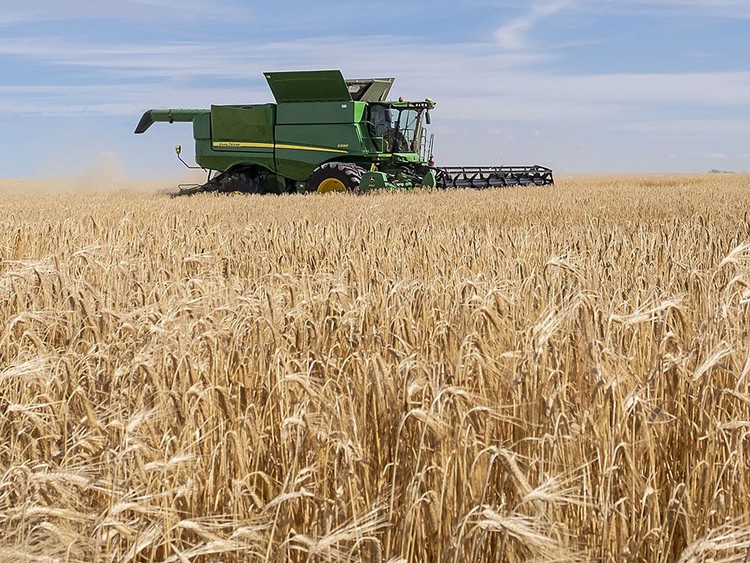
 apple.news
apple.news
If we are going to recover economically from the pandemic, and have a prosperous country in the coming decades, we cannot let policies cripple any sectors of our economy. If we are truly going to help the world, we cannot let carbon emissions be our only focus, at the expense of the pressing need the world has for our responsibly produced energy and food.
This so-called “just transition” is clearly unjust, and Canadians need to insist that their political leaders propose responsible policies that address all of our challenges, rather than targeting one issue at the expense of all others.

If you look at Ottawa’s latest environmental regulations targeting our energy and agriculture sectors, it’s hard not to see a giant bullseye painted on western Canada. Given the energy and food security crises gripping the world — and the inflation they cause — it would also seem that the archers are wearing blinders that entirely obscure our global realities.

In the latest step towards an “unjust” transition away from fossil fuels, the federal government is working out how to achieve its target of reducing greenhouse gas emissions by 42 per cent below 2019 levels by the end of the decade.
This hyper-aggressive and arbitrary target isn’t for all of society, of course, or even for large emitters. The energy sector — which is largely run by western-Canadians — will be forced to carry much of the burden, while its global competitors operate in jurisdictions with little or no carbon regulations at all.
On the agriculture front, an arbitrary 30 per cent reduction in nitrous oxide use was announced late last week. Nitrous oxide, of course, is a key ingredient in the fertilizers that improve yields on farmland, of which 70 per cent is in Saskatchewan and Alberta. Similar heavy-handed bureaucratic targets in the Netherlands have led to large protests that have shut down highways and caused economic harm.
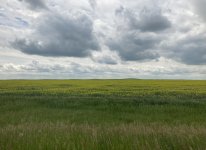
In the real world, the inflation problem is about to be made worse by a major increase in global food prices, as one of the world’s largest breadbaskets, Ukraine, continues to struggle to get its grain to market due to Russian attacks.
Canada’s response? Reduce our food output by slashing the use of fertilizers, ignoring the best farming practices and driving up costs.

In the real world, coal use is skyrocketing, as countries look for stable sources of energy in the face of natural gas shortages and disruptions in Russian supply. Asia, in particular, is building dozens of new coal generators, and even Europe is cancelling plans to phase out coal.
Canada’s response? Reduce energy production and exports by capping emissions from the oil and gas sector, thus driving up costs and ignoring the remarkable steps the industry and provincial governments have taken to make Canadian energy a global leader in terms of its environmental standards.
Adam Zivo: Liberals punish western Canada with whimsical emissions targets — National Post
Who needs evidence-based policy-making when you can parade big numbers in front of voters in Toronto and Montreal, while western Canada foots the bill?
In the real world, the estimated carbon emissions from China’s new coal plants alone are double what Alberta’s oilsands emit.
Canada’s response? Introduce Bill C-69 and other regulations that have derailed natural gas production and prevented the building of LNG export terminals, making us neither able to help Asia cut emissions by displacing coal, nor help Europe get out from under the thumb of Russian President Vladimir Putin.

Clearly, the federal government’s economically devastating regulations are being pushed forward by people solely focused on Canada’s emissions, in utter disregard for what the world actually needs right now, and with disdain for the real environmental progress that has been made in both sectors.

These aggressive regulations seem also to be pushed by people making a cold political calculation: a look at the electoral map shows the current government gets little to no MPs from the places where farmers and energy workers live.
Bill Bewick: Ottawa's unjust energy transition paints a bullseye on western Canada — National Post
The so-called just transition is clearly unjust
If Quebec and Ontario were home to the oilsands, nobody believes their key sector would be singled out like this. Likewise, If the ruling party relied on farming communities for political support, it would not be pushing a radical cut in fertilizer use.
To some extent, of course, this is to be expected in politics, but the stakes right now for all Canadians are far too high to shrug this off. Inflation is a key issue for many Canadians, and these policies will make it much worse. They will also make Canadians poorer, while exacerbating global food insecurity.
Rex Murphy: Food and energy — the Liberal government's attack on life's essentials — National Post
After targeting the oil and gas sector, the federal government now wants to cut emissions from fertilizer usage by 30 per cent
If we are going to recover economically from the pandemic, and have a prosperous country in the coming decades, we cannot let policies cripple any sectors of our economy. If we are truly going to help the world, we cannot let carbon emissions be our only focus, at the expense of the pressing need the world has for our responsibly produced energy and food.
This so-called “just transition” is clearly unjust, and Canadians need to insist that their political leaders propose responsible policies that address all of our challenges, rather than targeting one issue at the expense of all others.

If you look at Ottawa’s latest environmental regulations targeting our energy and agriculture sectors, it’s hard not to see a giant bullseye painted on western Canada. Given the energy and food security crises gripping the world — and the inflation they cause — it would also seem that the archers are wearing blinders that entirely obscure our global realities.

In the latest step towards an “unjust” transition away from fossil fuels, the federal government is working out how to achieve its target of reducing greenhouse gas emissions by 42 per cent below 2019 levels by the end of the decade.
This hyper-aggressive and arbitrary target isn’t for all of society, of course, or even for large emitters. The energy sector — which is largely run by western-Canadians — will be forced to carry much of the burden, while its global competitors operate in jurisdictions with little or no carbon regulations at all.
On the agriculture front, an arbitrary 30 per cent reduction in nitrous oxide use was announced late last week. Nitrous oxide, of course, is a key ingredient in the fertilizers that improve yields on farmland, of which 70 per cent is in Saskatchewan and Alberta. Similar heavy-handed bureaucratic targets in the Netherlands have led to large protests that have shut down highways and caused economic harm.

They knew back then it had fertilizer potential. We still had Japanese gardeners back then and used it in their compost.I knew they had a problem. I didn’t know there is potential value in it.
They were more concerned about how to keep it from spreading and how to get rid of it.
After they stopped dumping sewage, whisky mash and apple pulp into the lakes, it took a decade for Wood Lake to go from shit brown to to hard water blue. The pH shift was dramatic.
So why isn't this better known?
I have a boat that came from Kaslo, and the leg has corrosion that looks like barnacles have etched it. I suspect this is from the potassium content of the water?
I have a boat that came from Kaslo, and the leg has corrosion that looks like barnacles have etched it. I suspect this is from the potassium content of the water?
Limestone. Its calcium chloride. The great grandfathers of the barnacle.So why isn't this better known?
I have a boat that came from Kaslo, and the leg has corrosion that looks like barnacles have etched it. I suspect this is from the potassium content of the water?

Putting Invasive Weeds to Work - Modern Farmer
An invasive water plant may hold the key to fertile soil.
So Trudeau's assumption is that while he kyboshes farming, he'll still be able to eat while the rest of us starve. Oh goody - can't wait - I believe that's called "white privilege" isn't it except that he's the only white that will benefit while everyone else, no matter the race, will not.Trudeau’s nitrogen policy will decimate Canadian farming
View attachment 14728
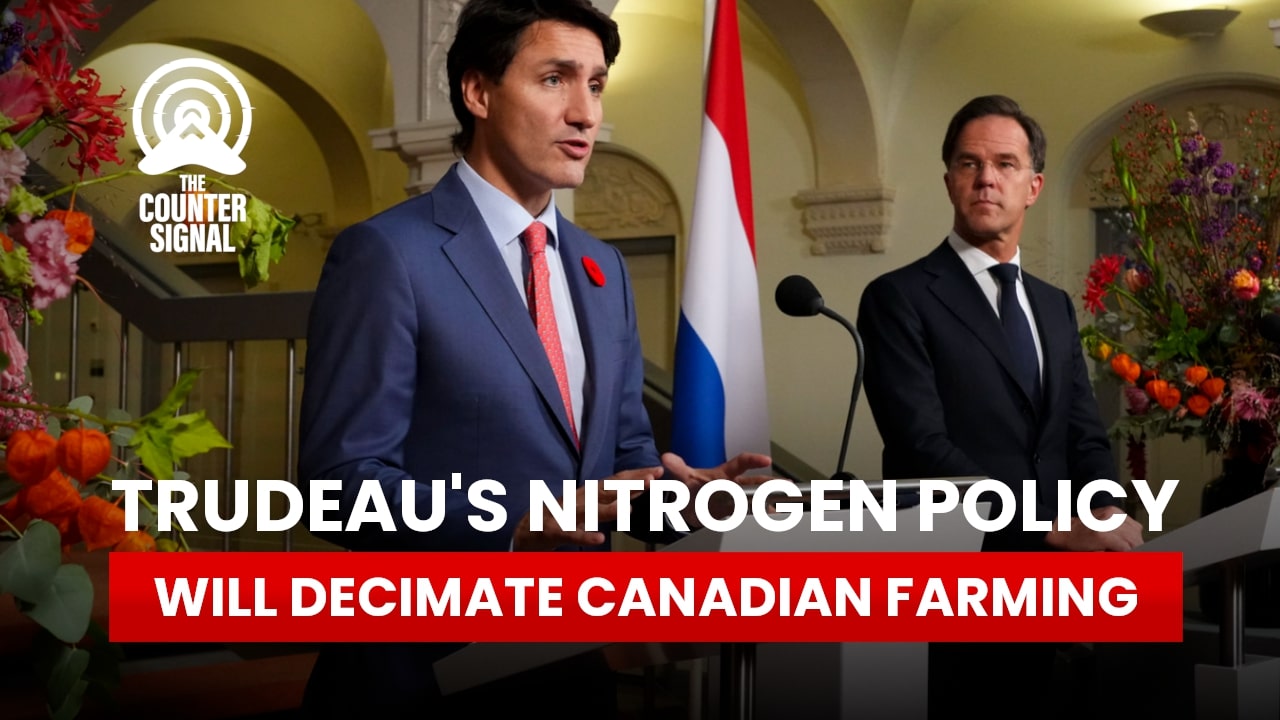
Trudeau's nitrogen policy will decimate Canadian farming - The Counter Signal
Much like in the Netherlands, Justin Trudeau is bringing in a nitrogen emissions cap that will absolutely decimate Canadian farming.thecountersignal.com
My, it must be so nice to be so powerful that you can destroy virtually everyone else's manner of making a living by not having to actually work for a living himself. What an ignorant man!!
As explained there is always a side swindle, cash cow. Organic nitrogen from an abudant and problematic source. It gets 2 birds stoned on one hitSo Trudeau's assumption is that while he kyboshes farming, he'll still be able to eat while the rest of us starve. Oh goody - can't wait - I believe that's called "white privilege" isn't it except that he's the only white that will benefit while everyone else, no matter the race, will not.
My, it must be so nice to be so powerful that you can destroy virtually everyone else's manner of making a living by not having to actually work for a living himself. What an ignorant man!!
If his fucking plane ran on fertilizer it would be a different story.So Trudeau's assumption is that while he kyboshes farming, he'll still be able to eat while the rest of us starve. Oh goody - can't wait - I believe that's called "white privilege" isn't it except that he's the only white that will benefit while everyone else, no matter the race, will not.
My, it must be so nice to be so powerful that you can destroy virtually everyone else's manner of making a living by not having to actually work for a living himself. What an ignorant man!!
It doesn't run on fertilizer ..... it just spews it when the PM is aboard.If his fucking plane ran on fertilizer it would be a different story.
If his fucking plane ran on fertilizer it would be a different story.
I thought it was powered by wishful thinking and baby seals and unicorn farts and carbon credits?It doesn't run on fertilizer ..... it just spews it when the PM is aboard.
Wishful thinking is the input, fertilizer is the output.I thought it was powered by wishful thinking and baby seals and unicorn farts and carbon credits?
Oh that’s right. Baby Seals is David Suzuki’s bus. My bad.Wishful thinking is the input, fertilizer is the output.
If there’s one thing that can be said about the Liberals, it’s that when they put their minds to something, there’s virtually nothing that can stop them.
Unfortunately, the Trudeau government has been almost singularly focused on its crusade against climate change, even at the expense of the well-being of Canadians and our geopolitical interests. Its decision to force farmers to reduce fertilizer use at a time of high inflation and increasing food insecurity is another example of a government that turns a blind eye to the human and economic costs of its climate policies.

Rising inflation coupled with shortages of numerous commodities are causing very real problems, at home and abroad. In June, Statistics Canada reported that the cost of food had risen 8.8 per cent in the previous year.

Instead of addressing that problem, however, the government of Prime Minister Justin Trudeau is ploughing ahead with its plan to reduce emissions of nitrous oxide, a byproduct of nitrogen-based fertilizers, by 30 per cent over the next eight years. This became a flashpoint late last week following a meeting of federal and provincial agriculture ministers in Saskatoon, and anger has been growing since.
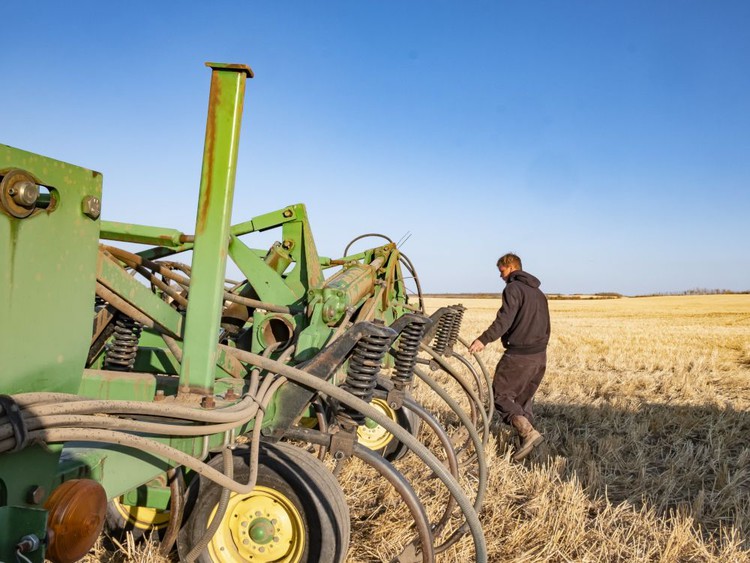
 apple.news
apple.news
According to the Government of Saskatchewan, the provinces had to push to get the fertilizer issue onto the agenda, only to find out that the target had already been set.”The Trudeau government has apparently moved on from their attack on the oil and gas industry and set their sights on Saskatchewan farmers,” said Saskatchewan Agriculture Minister David Marit.
Farm industry groups say there’s simply no viable way to reduce nitrous oxide emissions without reducing the use of fertilizers, which will lower crop yields.

As Gunter Jochum, president of Western Canadian Wheat Growers, pointed out, “Farmers don’t need the government to tell them how to properly use fertilizer.” Yet they are the ones who will be footing the bill: according to an independent study from MNP, the policy will cost Canadian farmers over $48 billion in lost revenue from Canola, corn and wheat sales over the next eight years.
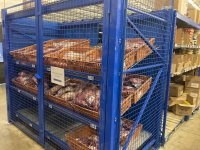
Along with the development of high-yield crops and effective pesticides, the use of industrial fertilizers can be credited with the world’s ability to feed more people than ever. Over the past 70 years, the global population increased 204 per cent, yet modern farming techniques, including the use of fertilizers, has allowed the per capita calorie supply, the average daily quantity of food energy available to a population, to increase practically everywhere.

In Canada, for example, the daily calorie supply increased 25 per cent between 1961 and 2018. Over the same period, wheat yields increased by 329 per cent; corn yields went up 112 per cent; and potato production rose 168 per cent.
This is nothing less than a modern miracle of human ingenuity that has improved the well-being of people around the globe. Yet it’s also the target of Trudeau’s disastrous climate policies, which will affect Canada’s ability to feed its citizens, and the world.
An example of how important Canada is to global agriculture supply chains can be seen in France, where many grocery store shelves once filled with Dijon mustard, a kitchen staple in that country, are now bare — a result of lower Canadian harvests due to fewer mustard crops having been planted last year, combined with severe summer droughts on the Prairies.

No one is going to go hungry for lack of mustard, but it goes to show how easily food supplies can be disrupted — along with the myriad of issues farmers face, without having to worry about onerous new government regulations hampering their ability to grow crops.
As the fifth-largest exporter of food, with exports totalling over $82 billion last year, the importance of Canada as the breadbasket of the world cannot be overstated. Nor can the agriculture and agri-food sector’s contribution to the Canadian economy: in 2021, it supported 2.1 million jobs and constituted 6.8 per cent of GDP.
Unfortunately, it’s all too easy to see what the Liberals, and their New Democratic partners, will do once the fertilizer cuts start affecting farmers’ bottom lines and driving the price of groceries even higher. The NDP is already calling on the government to double the GST tax credit and increase the Canada Child Benefit to help lower-income Canadians put food on their tables.

Meanwhile, Canadian agricultural producers received over $5.7 billion in government subsidies last year. And then there’s the supply management system, which protects dairy, poultry and egg producers from domestic and foreign competition, ensuring their prices remain high and adding hundreds of dollars to the average Canadian family’s annual grocery bill.

Forcing farmers to reduce their fertilizer use will only increase the pressure on governments to offer more financial support, at taxpayers’ expense. This is the exact opposite of what’s needed at the moment.
Instead of being limited by government regulation, farmers should be encouraged to find ways to increase output in order to meet global demand, especially in the face of looming shortages. The supply management system should also be phased out, in order to bring down the cost of Canadian staples and allow our dairy, poultry and egg farmers increased access to foreign markets.
Yet none of these solutions will be possible, so long as the Trudeau Liberals are singularly focused on the climate issue, which, while certainly a pressing longer-term international problem, should not come at the expense of human lives and well-being in the here and now.
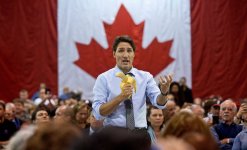
Unfortunately, the Trudeau government has been almost singularly focused on its crusade against climate change, even at the expense of the well-being of Canadians and our geopolitical interests. Its decision to force farmers to reduce fertilizer use at a time of high inflation and increasing food insecurity is another example of a government that turns a blind eye to the human and economic costs of its climate policies.

Rising inflation coupled with shortages of numerous commodities are causing very real problems, at home and abroad. In June, Statistics Canada reported that the cost of food had risen 8.8 per cent in the previous year.

Instead of addressing that problem, however, the government of Prime Minister Justin Trudeau is ploughing ahead with its plan to reduce emissions of nitrous oxide, a byproduct of nitrogen-based fertilizers, by 30 per cent over the next eight years. This became a flashpoint late last week following a meeting of federal and provincial agriculture ministers in Saskatoon, and anger has been growing since.
NP View: Trudeau ploughs ahead with fertilizer cut, while turning a blind eye to human suffering — National Post
The Liberals' decision to force farmers to reduce fertilizer use at a time of high inflation and increasing food insecurity is another example of a government that turns a blind eye to the human and economic costs of its climate policies
According to the Government of Saskatchewan, the provinces had to push to get the fertilizer issue onto the agenda, only to find out that the target had already been set.”The Trudeau government has apparently moved on from their attack on the oil and gas industry and set their sights on Saskatchewan farmers,” said Saskatchewan Agriculture Minister David Marit.
Farm industry groups say there’s simply no viable way to reduce nitrous oxide emissions without reducing the use of fertilizers, which will lower crop yields.

As Gunter Jochum, president of Western Canadian Wheat Growers, pointed out, “Farmers don’t need the government to tell them how to properly use fertilizer.” Yet they are the ones who will be footing the bill: according to an independent study from MNP, the policy will cost Canadian farmers over $48 billion in lost revenue from Canola, corn and wheat sales over the next eight years.

Along with the development of high-yield crops and effective pesticides, the use of industrial fertilizers can be credited with the world’s ability to feed more people than ever. Over the past 70 years, the global population increased 204 per cent, yet modern farming techniques, including the use of fertilizers, has allowed the per capita calorie supply, the average daily quantity of food energy available to a population, to increase practically everywhere.

In Canada, for example, the daily calorie supply increased 25 per cent between 1961 and 2018. Over the same period, wheat yields increased by 329 per cent; corn yields went up 112 per cent; and potato production rose 168 per cent.
This is nothing less than a modern miracle of human ingenuity that has improved the well-being of people around the globe. Yet it’s also the target of Trudeau’s disastrous climate policies, which will affect Canada’s ability to feed its citizens, and the world.
An example of how important Canada is to global agriculture supply chains can be seen in France, where many grocery store shelves once filled with Dijon mustard, a kitchen staple in that country, are now bare — a result of lower Canadian harvests due to fewer mustard crops having been planted last year, combined with severe summer droughts on the Prairies.

No one is going to go hungry for lack of mustard, but it goes to show how easily food supplies can be disrupted — along with the myriad of issues farmers face, without having to worry about onerous new government regulations hampering their ability to grow crops.
As the fifth-largest exporter of food, with exports totalling over $82 billion last year, the importance of Canada as the breadbasket of the world cannot be overstated. Nor can the agriculture and agri-food sector’s contribution to the Canadian economy: in 2021, it supported 2.1 million jobs and constituted 6.8 per cent of GDP.
Unfortunately, it’s all too easy to see what the Liberals, and their New Democratic partners, will do once the fertilizer cuts start affecting farmers’ bottom lines and driving the price of groceries even higher. The NDP is already calling on the government to double the GST tax credit and increase the Canada Child Benefit to help lower-income Canadians put food on their tables.

Meanwhile, Canadian agricultural producers received over $5.7 billion in government subsidies last year. And then there’s the supply management system, which protects dairy, poultry and egg producers from domestic and foreign competition, ensuring their prices remain high and adding hundreds of dollars to the average Canadian family’s annual grocery bill.

Forcing farmers to reduce their fertilizer use will only increase the pressure on governments to offer more financial support, at taxpayers’ expense. This is the exact opposite of what’s needed at the moment.
Instead of being limited by government regulation, farmers should be encouraged to find ways to increase output in order to meet global demand, especially in the face of looming shortages. The supply management system should also be phased out, in order to bring down the cost of Canadian staples and allow our dairy, poultry and egg farmers increased access to foreign markets.
Yet none of these solutions will be possible, so long as the Trudeau Liberals are singularly focused on the climate issue, which, while certainly a pressing longer-term international problem, should not come at the expense of human lives and well-being in the here and now.

They no longer have the proceeds from the Canadian Wheat Board , what would you expect ?If there’s one thing that can be said about the Liberals, it’s that when they put their minds to something, there’s virtually nothing that can stop them.
Unfortunately, the Trudeau government has been almost singularly focused on its crusade against climate change, even at the expense of the well-being of Canadians and our geopolitical interests. Its decision to force farmers to reduce fertilizer use at a time of high inflation and increasing food insecurity is another example of a government that turns a blind eye to the human and economic costs of its climate policies.
View attachment 14994
Rising inflation coupled with shortages of numerous commodities are causing very real problems, at home and abroad. In June, Statistics Canada reported that the cost of food had risen 8.8 per cent in the previous year.
View attachment 14993
Instead of addressing that problem, however, the government of Prime Minister Justin Trudeau is ploughing ahead with its plan to reduce emissions of nitrous oxide, a byproduct of nitrogen-based fertilizers, by 30 per cent over the next eight years. This became a flashpoint late last week following a meeting of federal and provincial agriculture ministers in Saskatoon, and anger has been growing since.

NP View: Trudeau ploughs ahead with fertilizer cut, while turning a blind eye to human suffering — National Post
The Liberals' decision to force farmers to reduce fertilizer use at a time of high inflation and increasing food insecurity is another example of a government that turns a blind eye to the human and economic costs of its climate policiesapple.news
According to the Government of Saskatchewan, the provinces had to push to get the fertilizer issue onto the agenda, only to find out that the target had already been set.”The Trudeau government has apparently moved on from their attack on the oil and gas industry and set their sights on Saskatchewan farmers,” said Saskatchewan Agriculture Minister David Marit.
Farm industry groups say there’s simply no viable way to reduce nitrous oxide emissions without reducing the use of fertilizers, which will lower crop yields.
View attachment 14989
As Gunter Jochum, president of Western Canadian Wheat Growers, pointed out, “Farmers don’t need the government to tell them how to properly use fertilizer.” Yet they are the ones who will be footing the bill: according to an independent study from MNP, the policy will cost Canadian farmers over $48 billion in lost revenue from Canola, corn and wheat sales over the next eight years.
View attachment 14995
Along with the development of high-yield crops and effective pesticides, the use of industrial fertilizers can be credited with the world’s ability to feed more people than ever. Over the past 70 years, the global population increased 204 per cent, yet modern farming techniques, including the use of fertilizers, has allowed the per capita calorie supply, the average daily quantity of food energy available to a population, to increase practically everywhere.
View attachment 14990
In Canada, for example, the daily calorie supply increased 25 per cent between 1961 and 2018. Over the same period, wheat yields increased by 329 per cent; corn yields went up 112 per cent; and potato production rose 168 per cent.
This is nothing less than a modern miracle of human ingenuity that has improved the well-being of people around the globe. Yet it’s also the target of Trudeau’s disastrous climate policies, which will affect Canada’s ability to feed its citizens, and the world.
An example of how important Canada is to global agriculture supply chains can be seen in France, where many grocery store shelves once filled with Dijon mustard, a kitchen staple in that country, are now bare — a result of lower Canadian harvests due to fewer mustard crops having been planted last year, combined with severe summer droughts on the Prairies.
View attachment 14996
No one is going to go hungry for lack of mustard, but it goes to show how easily food supplies can be disrupted — along with the myriad of issues farmers face, without having to worry about onerous new government regulations hampering their ability to grow crops.
As the fifth-largest exporter of food, with exports totalling over $82 billion last year, the importance of Canada as the breadbasket of the world cannot be overstated. Nor can the agriculture and agri-food sector’s contribution to the Canadian economy: in 2021, it supported 2.1 million jobs and constituted 6.8 per cent of GDP.
Unfortunately, it’s all too easy to see what the Liberals, and their New Democratic partners, will do once the fertilizer cuts start affecting farmers’ bottom lines and driving the price of groceries even higher. The NDP is already calling on the government to double the GST tax credit and increase the Canada Child Benefit to help lower-income Canadians put food on their tables.
View attachment 14991
Meanwhile, Canadian agricultural producers received over $5.7 billion in government subsidies last year. And then there’s the supply management system, which protects dairy, poultry and egg producers from domestic and foreign competition, ensuring their prices remain high and adding hundreds of dollars to the average Canadian family’s annual grocery bill.
View attachment 14988
Forcing farmers to reduce their fertilizer use will only increase the pressure on governments to offer more financial support, at taxpayers’ expense. This is the exact opposite of what’s needed at the moment.
Instead of being limited by government regulation, farmers should be encouraged to find ways to increase output in order to meet global demand, especially in the face of looming shortages. The supply management system should also be phased out, in order to bring down the cost of Canadian staples and allow our dairy, poultry and egg farmers increased access to foreign markets.
Yet none of these solutions will be possible, so long as the Trudeau Liberals are singularly focused on the climate issue, which, while certainly a pressing longer-term international problem, should not come at the expense of human lives and well-being in the here and now.
View attachment 14992
According to stoners, legal weed was supposed to cover all our taxes. What happened man?They no longer have the proceeds from the Canadian Wheat Board , what would you expect ?
We kept buying from proven sources man .According to stoners, legal weed was supposed to cover all our taxes. What happened man?